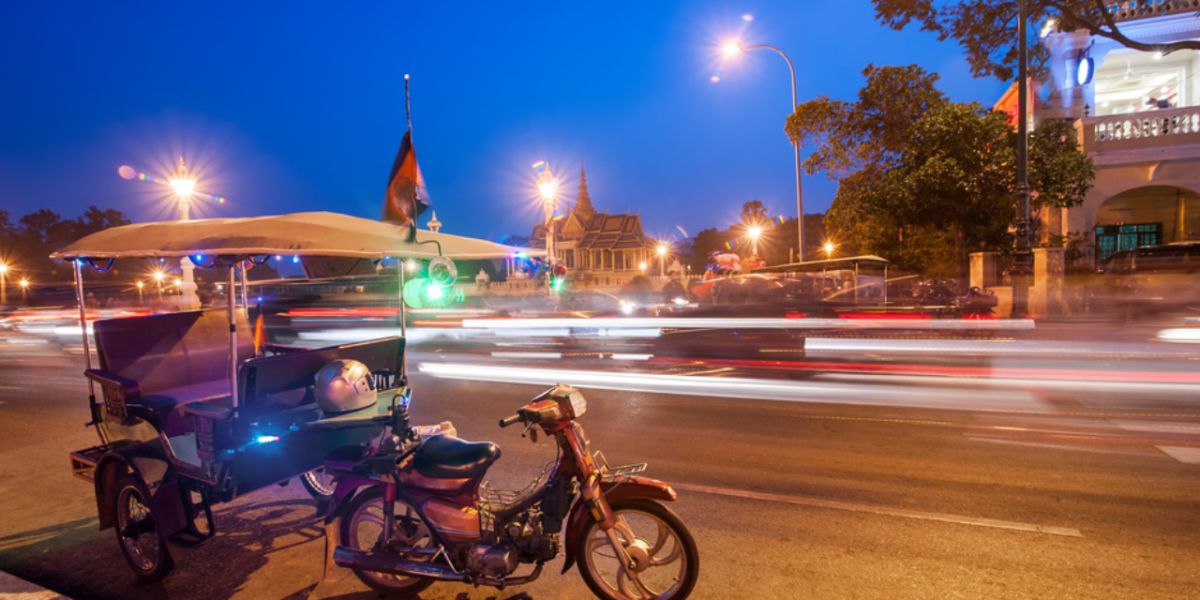
If you're moving to Cambodia as part of an expat package, whereby the company will pay for your relocation costs, then it's a good idea to employ the services of a reputable international moving company to help ship your belongings over to Cambodia.

Unless you are a diplomat or an NGO employee, you should be aware that your personal effects will be subject to duty, which can sometimes end up costing a great deal. To avoid these high costs, many expats simply choose to move to Cambodia with a couple of suitcases, then buy whatever they need when they're in the country. Most goods are available, from wicker tables to comfy couches, so you shouldn't need to worry about finding suitable replacements. However, if you're attached to your belongings and don't want to sell or put everything in storage before your move (especially if you intend to be in Cambodia for a long time), then you may wish to find a relocation specialist that can help you to import your personal possessions and can try to minimise any duty liability. Just brace yourself for a hit to your wallet.
Customs
Do be aware that customs regulations can change at any time, so it's a good idea to seek advice on expat forums or with a relocation specialist to gain updated information as to regulations applicable to any household goods that you wish to ship.
If you have diplomatic status or work for an NGO, you can import your personal effects and even a motor vehicle (so long as it is a left-hand drive) into Cambodia without needing to pay duty. You will need to simply obtain a letter from the Ministry of Foreign Affairs that verifies this and requests for customs to allow you to import your belongings duty-free.
All other foreigners can import their household goods into Cambodia, but they will be subject to duty, which varies and is often subject to negotiation with the customs department. Bear in mind that, for non-diplomats and NGO employees, importing a car or motorbike can be a long and arduous process that involves the vehicle being stored at the port for at least one month at a cost of approximately US$750/month, and the duty is approximately 100% of the vehicle's value, as determined by the customs department.
If your belongings are relocated to Cambodia by air, you will need to show your original passport, so make sure you are in Cambodia when the shipment arrives. However, if your worldly possessions travel by sea, then the customs department will only need a copy of your passport for clearance.
For your goods to be shipped, you will need to provide a letter, written on letterheaded paper by your employer, that states that you will be working in Cambodia and describes your position. The company you will be working for also needs to be registered in Cambodia.
Do note that certain goods are prohibited from being included in your shipments, such as firearms, ammunition, pornographic material, food, alcohol and medicine.
Moving companies
There are a few international moving companies that are particularly popular amongst expatriates ' JVK Naga Movers, Narita Logistics and Services, and Intra Co.
JVK Naga Movers is known for its ability to adeptly handle Cambodian bureaucracy and can work out less expensive than other movers; Narita Logistics and Services works with FIDI Global Alliance and deals with both international and local moves; and Intra Co. offers more of a DIY service that is also considerably cheaper than other companies, so is good if you're on a tight budget.
Budget
Before you relocate to Cambodia, it's advisable to have saved enough money to cover at least three to six months' of expenditure, which can obviously vary significantly depending on your lifestyle and requirements. Among other things, you'll need to be prepared to pay one or two month's deposit in addition to one month's rent in advance. And if you're planning on job hunting once you're in the country, then you should prepare to spend at least a month unemployed (even a teaching position can take a while to find if you're looking for a good one). Having enough money can buy you time and options, so that you don't need to take the first job that you get offered if it's not quite what you want.
Also bear in mind that Cambodia can be an exceptionally fun place to live if you make the most of what's going on, attend events to make friends and network with other expats, and do some travelling. Budgeting enough money can save you financial stress in those early days while you get settled and get to know your chosen city.
If you have decided to relocate to Cambodia, take enough time to choose your removal company. This is an important step not to be taken lightly. Set up an appointment with a relocation counselor for an in-house estimate. Make a list of all the objects that require special care (glass, mirror, a piece of art, special packaging etc.) Specify to the mover what you will do yourself (dismantling furniture, packing dishes etc.). To find a carrier or a mover, use the Internet, consult the yellow pages or get a free quote and find your mover in Cambodia now.
Regarding the estimate, several key points are to be considered such as:
- Origin address ' where removers will pack and load your belongings
- The destination address in Cambodia ' where removers will unload your belongings
- Volume or weight of your stuff
- Types of transportation (by air, train, truck, ship)
- Nature of the services ' terms and conditions ' insurance damage
- Prices and payment plans.
Usually, removal companies unload your belongings directly to the destination address. However, some removal companies unload your belongings in warehouses and you have to pick them up yourself afterwards, implying additional costs. Check your moving contract carefully.
Making a list
Make an exhaustive inventory of your belongings so as to establish a value statement. The value statement is an important document that sets the compensation amount you could receive in case of loss or damage to your belongings.
Complete the declaration of value yourself by stating the overall value of your property and the value of certain particular precious items. Read carefully the terms and conditions of your contract to find out more about transportation and handling of precious objects. This statement is particularly important because, without it, an estimate cannot be established, which will obviously affect your relocation and your organization.
Damage insurance
Accordingly, a damage insurance will be proposed by the carrier. This insurance automatically covers non-predictable damage associated with the transportation of your belongings up to the value indicated in the declaration of value. The cost for the insurance depends on the overall value of your belongings. The removal company must issue a certificate of insurance in any case.
Waybill
Finally, you must sign the waybill before loading and after delivery of your belongings. The waybill is a document that specifies the terms and conditions of the contract, the mode of transportation, the volume or weight carried by the removal company, the name and address of both the customer and the carrier. By signing the waybill, you definitely agree to these terms and conditions and give permission to the removal company to go ahead.
Regarding removal payment plans, a deposit is usually to be paid before loading and the balance must be paid upon delivery. A payment plan must be arranged with the removal company in any case.
Important:
In general, carriers handle custom paperwork for you (customs clearance etc.) For more security, opt for a carrier affiliated with the FIDI (International Federation of International Movers).
Good to know:
Contact the Cambodian embassy or consulate for more information about relocation in the country, customs, prohibited items etc.
Useful links:
FEDEMAC - Federation of European Movers
FIDI - International Federation of International Removers
JVK Asia
FIDI Global Alliance
Intra Co.
We do our best to provide accurate and up to date information. However, if you have noticed any inaccuracies in this article, please let us know in the comments section below.








